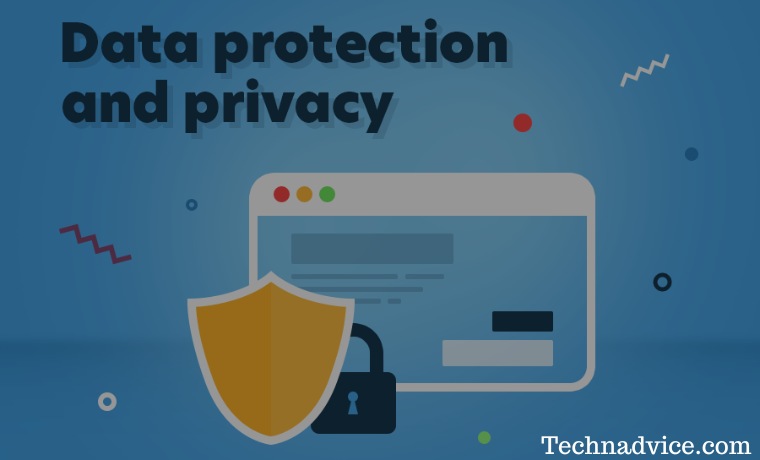
Data Privacy in the Digital Age: Challenges and Strategies for Protection – In the digital age, where technology is deeply intertwined with our daily lives, the issue of data privacy has become increasingly prominent.
Table of Contents
Data Privacy in the Digital Age: Challenges and Strategies for Protection
With the proliferation of online services, social media platforms, and connected devices, individuals are generating vast amounts of data that are being collected, stored, and analyzed by various entities.
However, this abundance of personal data raises concerns about privacy and the potential misuse of sensitive information.
You can’t trust them like you trust an online casino with live dealer. This article explores the challenges posed by data privacy in the digital age and examines strategies for protecting personal information.
Challenges of Data Privacy
-
Data Collection and Storage:
- One of the fundamental challenges in the digital age is the massive collection and storage of personal data. Companies, governments, and other organizations collect data from various sources, such as online interactions, social media platforms, mobile applications, and IoT devices. This extensive data collection poses privacy risks, as individuals often have limited control over how their data is collected, used, and retained.
-
Third-Party Sharing and Data Brokers:
- Another challenge is sharing personal data with third parties and brokers. Many online services and platforms engage in data-sharing practices, often for targeted advertising or other commercial purposes. The lack of transparency and control over such data transfers can lead to the proliferation of personal information across multiple entities, making it difficult for individuals to maintain control over their own data.
- Data Breaches and Cybersecurity:
- Data breaches have become all too common, exposing vast amounts of personal data to malicious actors. Cybercriminals target organizations to gain unauthorized access to sensitive information, leading to significant privacy breaches. These incidents not only compromise personal data but also erode public trust in the organizations responsible for safeguarding user information.
- Surveillance and Government Access:
- Government surveillance and access to personal data have raised concerns regarding privacy and civil liberties. Mass surveillance programs, both domestic and international, can infringe upon individuals’ right to privacy and create a chilling effect on freedom of expression. The tension between national security and individual privacy rights remains a significant challenge in the digital age.
- Lack of Awareness and Education:
- Many individuals are unaware of the extent to which their personal data is collected, shared, and used. This lack of awareness hampers the ability to make informed decisions about privacy and consent. Educating the public about data privacy risks and best practices is crucial to empower individuals to protect their own information.
Strategies for Data Privacy Protection:
- Strong Data Protection Regulations:
- Governments and regulatory bodies play a crucial role in safeguarding data privacy. Implementing and enforcing robust data protection regulations, such as the General Data Protection Regulation (GDPR) in the European Union, can help protect individuals’ rights and provide guidelines for organizations to handle personal data responsibly. Such regulations often include provisions for data minimization, purpose limitation, individual consent, and the right to erasure.
- Privacy by Design:
- Privacy should be a core consideration during the development any product or service. Privacy by Design principles emphasizes incorporating privacy features into the design and architecture of systems from the outset. This approach includes minimizing data collection, anonymizing data where possible, implementing strong security measures, and providing individuals with meaningful control over their data.
- Transparency and Consent:
- Organizations should prioritize transparency in their data practices. This includes providing clear and easily understandable privacy policies, and informing individuals about the types of data collected, the purposes for which it will be used, and the third parties with whom it will be shared. Obtaining informed consent before collecting and processing personal data is essential to ensure individuals have control over their information.
- Enhanced Cybersecurity Measures:
- To protect personal data from unauthorized access and data breaches, organizations must invest in robust cybersecurity measures. This includes implementing strong encryption, regularly updating software and systems, conducting security audits, and training employees on cybersecurity best practices. Proactive measures can help minimize the risk of data breaches and enhance data protection.
- Individual Empowerment:
- Empowering individuals to protect their data privacy requires education and tools. Organizations should provide clear instructions on how individuals can manage their privacy settings, control data sharing, and exercise their rights under data protection laws. User-friendly interfaces and privacy-enhancing technologies can give individuals more control over their personal information.
- Ethical Data Practices:
- Organizations should adopt ethical data practices that prioritize privacy and respect for individuals’ rights. This includes minimizing data retention periods, conducting regular data audits, and only collecting and using data necessary for the intended purpose. An ethical approach to data handling helps build trust with users and fosters a culture of privacy protection.
In conclusion, data privacy in the digital age presents numerous challenges that need to be addressed through a multi-faceted approach. Governments, organizations, and individuals must work together to protect personal information.
By implementing strong data protection regulations, prioritizing privacy in product and service design, enhancing cybersecurity measures, fostering transparency and consent, empowering individuals, and promoting ethical data practices, we can navigate the complexities of data privacy in the digital age and ensure that personal information is safeguarded from misuse and unauthorized access.
Ultimately, protecting data privacy is crucial to upholding individual rights, maintaining trust in digital services, and preserving the integrity of our increasingly interconnected world.
Don’t forget to bookmark and always visit every day Technadvice.com because here you can find the latest technology information such as How-to Guide Tips and Tricks Blogging Digital Marketing Windows Android Root Social Media games, ETC. Best of luck.


![200+ Free Roblox Accounts With Full Robux That Works [2024] 200+ Free Roblox Accounts With Full Robux That Works](https://technadvice.com/wp-content/uploads/2023/07/200-Free-Roblox-Accounts-With-Full-Robux-That-Works-218x150.jpg)









